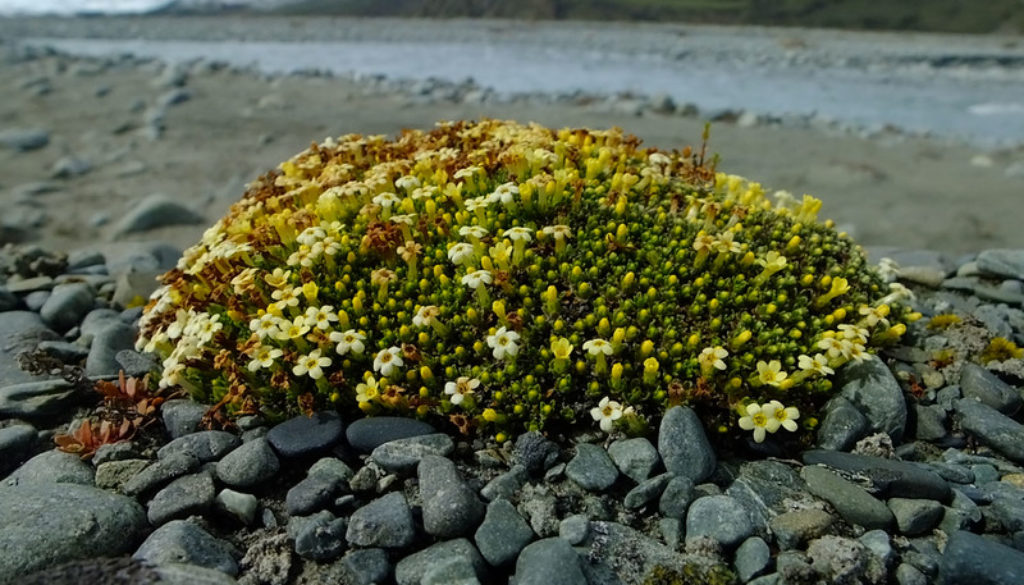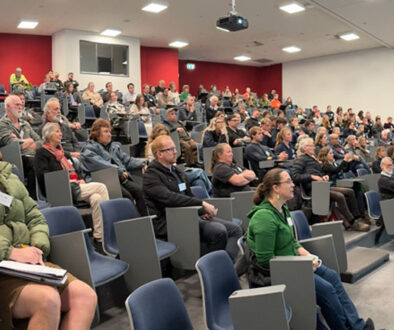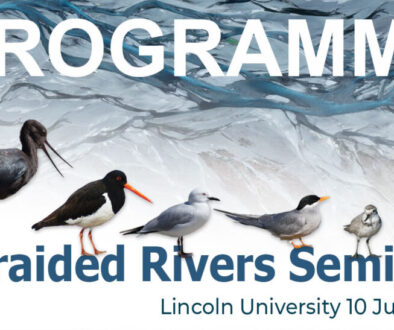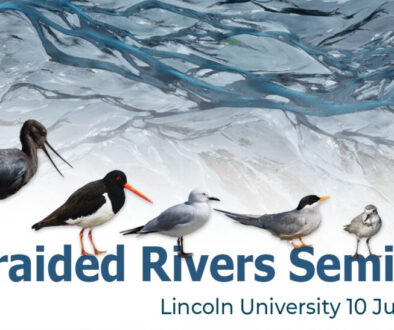Newsletter #17
Kia ora,
I hope you\’re all enjoying Waitangi Day.
Our next meeting is on Friday 26th February and it would be great if as many people as possible can come along to discuss the Braided Rivers Partnership Project, which is now getting underway.
We are now well into organising the Braided Rivers Workshop 31 May, with some excellent speakers and programme. I won\’t be advertising this widely until the final details are confirmed, however you can register for the workshop. There\’s something for everyone, with 14 speakers so far presenting on topics such as chemical camouflage, techniques for attracting black-fronted terns, DNA analysis, population trends, cat monitoring, and the unique braided river Robust Grasshopper. As there are only so many people that can present in a one-day workshop, we are inviting submissions for posters on topics that relate to braided rivers. This could be on anything from conservation and hydrology to social science topics such as citizen science and community engagement. We are also inviting postgraduate students to submit posters. It\’s a great opportunity to showcase their work, share new ideas, network with conservation professionals and volunteers, and stimulate discussion. To paraphrase Einstein, we need new, younger minds to help solve the problems that our generation has created. So please, contact me if you would like to present a poster, or pass this to any students you think may be interested, and have them contact me.
Cheers,
Sonny Whitelaw,
BRaid Manager (manager@braid.org.nz)
Hundreds of birds massacred on Ashton Beach: Unfortunately, the earlier unconfirmed report has proven to be true. The front page news in the Ashburton Guardian shows Brad Edwards from DOC looking like the grim reaper as he gathers up some of the dead birds, including black-billed gulls and black-fronted terns. (Access online is only by subscription, hence the scanned article – thanks Edith for sending it through).
Braided River Awareness and Fundraising Auction: Stephanie Galla from the University of Canterbury has organised a superb fundraiser for Kakī Recovery Programme. Entry will be a gold coin and guests will be able to enjoy and bid on a wide array of braided river-themed art, participate in a raffle of fine goods from the Mackenzie and Waitaki Basins, savour a glass of wine from Black Stilt Winery, listen to live piano music, and learn more about the endangered kakī/black stilt.
Take 78 nests, 15 islands, 4 colonies, and 1 jetboat: find out from Ann-Kathrin Schlesselmann what happened next.
Black-billed gull and white fronted tern colonies on the Lower Waitaki entrance: At the entrance to the Lower Waitaki, the colony of black-billed gulls sighted during the aerial survey late last year was still present as of 04 January, near a separate colony of white-fronted terns.
Black-billed gull colony on the Waimakariri: The latest report from Courtney Thompson, ECan Regional Park Ranger.
Black-billed colony on the Ashburton River: This includes some great photos of the precarious situation the birds found themselves in as the river rose over the Christmas/New Year period. The images also highlight how so little usable nesting ground remains available to river birds.
Orari Bird Survey: The Orari River bird survey, undertaken in October 2015 by the Oarari River Protection group along with several volunteers, is now available online as a PDF.
Community Environment Fund opens in April 18: A reminder that the Ministry for the Environment Fund will open soon. They keep sending me reminders, so they clearly want to make sure everyone has plenty of time to prepare. One of BRaid\’s roles is to assist you, so please contact us if you would like help or advice about applying.
Roundup of recent news from around the web, including peer reviewed research:
- The \’pee\’ in pest control – developing super lures (Radio New Zealand)
- Alpine cushion plants harbour tiny mountain worlds inside (New Scientist – open access)
- What’s an abrupt decline in aragonite in the Southern Ocean mean to seabirds? Well, everything, if they want to eat (Nature)
- Understanding species contraction (Ecogeography)
- The tropics is moving south – fast – and pushing drought ahead of it (Nature – open access)
- Protecting & restoring coastal wetlands benefits birds and carbon trading (Nature news – open access)
- Nearly 500 complaints about stock in waterways, no prosecutions (Stuff)
- Educating for Sustainability conference: University of Auckland 9-12 February.
Thanks to those who have contributed to this newsletters. With almost 100 subscribers, many more of you must have tidbits we can share! Please keep them coming.




